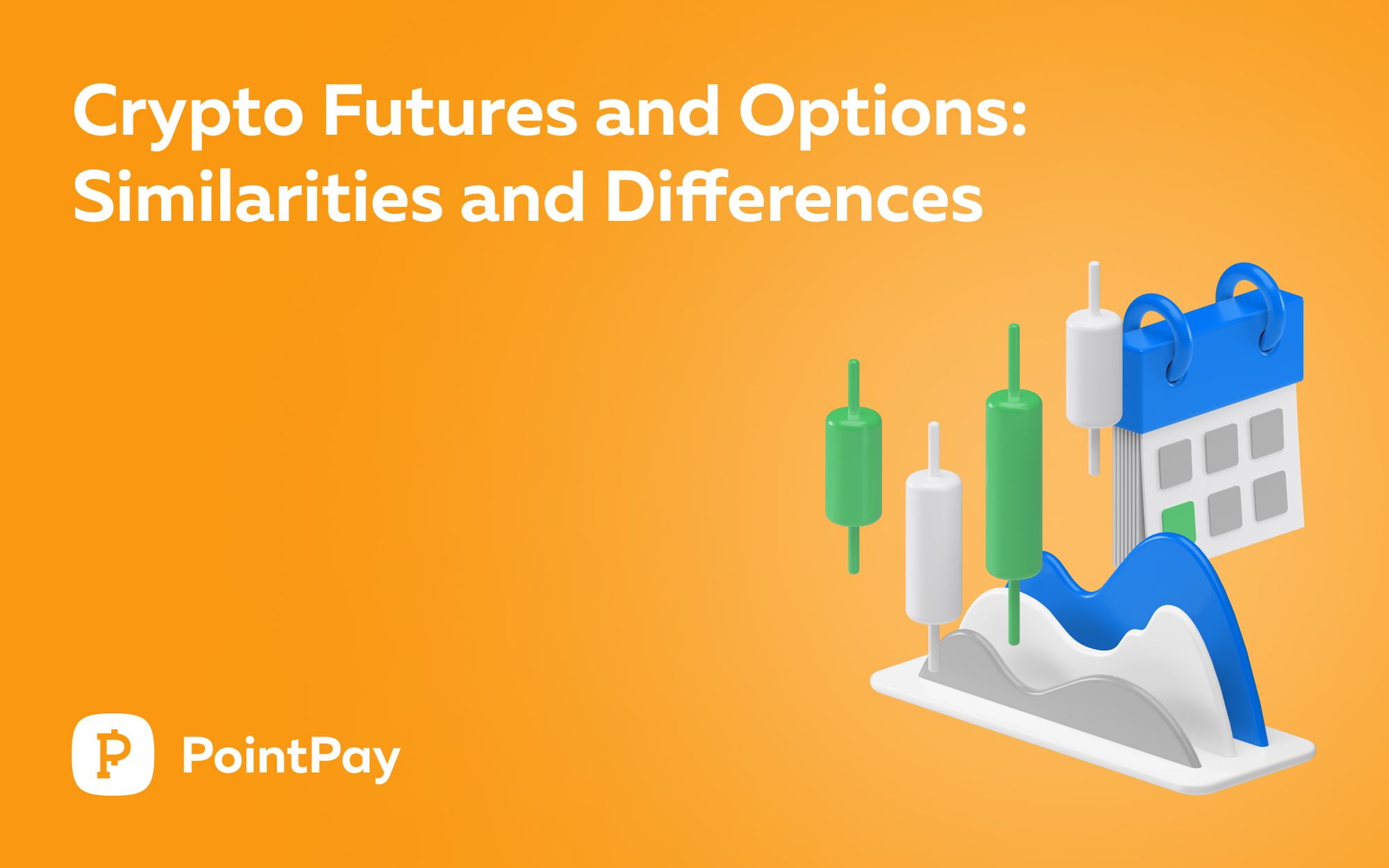As the crypto market expands, more products are becoming available to explore. Let’s take an example of crypto derivatives that have shown rapid growth in recent years.
A derivative is a tradable financial instrument that derives its value from an underlying asset, such as a cryptocurrency. It allows traders to get exposure to the price movement of an asset without actually owning it. There are different types of crypto derivatives, such as futures and options.
Let’s explore the definitions of each term and how they are used in trading assets.
What Are Crypto Futures Contracts?
A futures contract is an agreement between a buyer and a seller to sell an asset in the future. The specific date and amount are also agreed upon in advance Contact details may vary, but the terms are usually similar.
For instance, Jack, a random person, wants to buy ETH from his friend John who sells his 1 ETH for 1000$. Jack tells him that he will surely buy the ETH in 2 months, so they make a contract which states that John can sell his 1 ETH to nobody else but Jack for 100$ in 2 months.
Even if during the two months, the ETH value changes to 1400$, according to the contract, John is obligated to sell it for 1000$ to Jack. If the opposite happens and ETH loses its value, Jack is obligated to buy it for 1000$.
Futures are a popular type of crypto derivative commonly used by institutional investors. Data from futures are typically used to predict future price movements and market sentiment. Traders may either gain or lose depending on future price changes. The contract is settled in any currency agreed upon by both parties.
What Are Crypto Options?
Another kind of derivative contract is an option, which allows a trader to purchase or sell a specific asset at a predetermined price at a set date. But unlike futures, options give the buyer a choice to decide not to buy the asset. How so?
To enter an option contract, traders are required to pay a fee, say 200$, and take the same example of 1 ETH for 1000$. In this case, if Jack sees that the ETH price is up 1400$ closer to the contract date and he just doesn’t want to buy it for that price, he can choose not to fulfill the contract.
However, the $200 fee he paid to buy the contract will not be returned. In this case, his total loss would be $200.
There are several types of crypto options:
1. Call and Put: Call options allows traders to buy assets on a given date. Put options allow traders to sell assets on a given date.
2. American and European: American options can be sold before the contract’s expiry date, while European options must be sold exactly on the agreed date.
Similarities between crypto futures and options
Both futures and options are great tools for traders to profit from market movements, but just like everything else, they involve risks.
Let’s see what similarities they have:
- Both derivatives allow traders to participate in price moves without owning the underlying asset.
- Both contracts have expiry dates.
- Both provide exposure to a market with a smaller amount of cash than having to buy the position outright.
- Both have a current price, which changes through to expiry based on the underlying asset's performance. For instance, ETH price depends on market supply and demand for cryptocurrency.
- Both contracts allow traders to gain exposure to the underlying asset through leverage which means traders can buy or sell a large contract with relatively little capital.
Differences between crypto futures and options
Nevertheless, there are key differences between futures and options trading instruments:
Different obligations and rights: Futures are obligations to buy or sell according to the contract. In contrast, options provide the right not to fulfill the contract.
Various expiry date lengths: Futures expiry dates can be set years in advance, usually expiring on the same day each month or quarter, whereas option expiry dates are typically a year or less.
Different cost structure: A futures contract allows you to open a position without paying any upfront fee, whereas options do.
- Vary in potential risks: while both involve risks, options have upfront payments that can be lost if the contract is “burned,” while the risks with futures can be big as the asset's value can vary significantly until the contract date.
Further thoughts
Crypto derivatives are essential to the crypto economy as they give traders opportunities and more strategies to choose from. While the benefits are many, crypto derivatives, both futures and options, can be very risky, especially during volatile crypto markets. It is highly recommended that traders do thorough research and choose strategies carefully before investing.
🔥 Buy PXP tokens on Bittrex: https://bit.ly/32VWsci
🔥 Buy PXP tokens on Bitrue: https://bit.ly/3JEreHu
🔥 Buy PXP tokens on BitHumb: https://bit.ly/3qOK6e9
🔥 Buy PXP tokens on WhiteBIT: https://bit.ly/3qJrjRH
🔥 Buy PXP tokens on CoinTiger: https://bit.ly/3pnv6ny
💰 Earn up to 7% yearly with PXP staking program in PointPay Bank: https://bank.pointpay.io/staking
💡 Check PointPay Live-Roadmap (PointPay development in real-time): https://pointpay.io/live-roadmap/
🏦 Remember, we are PointPay, and we are beyond banking!
